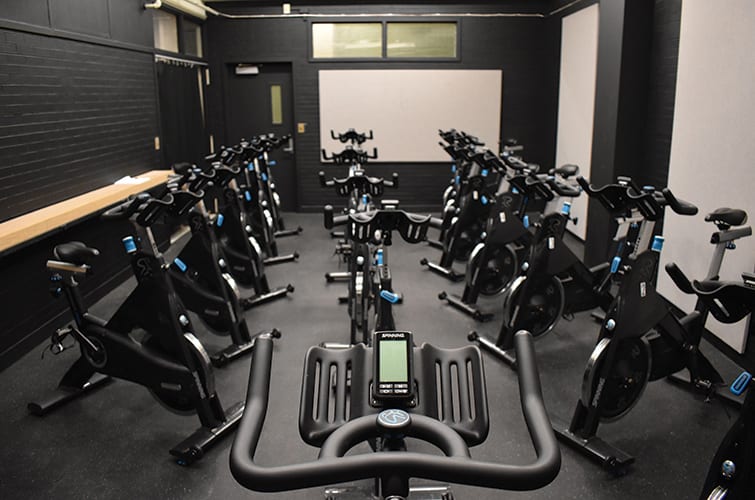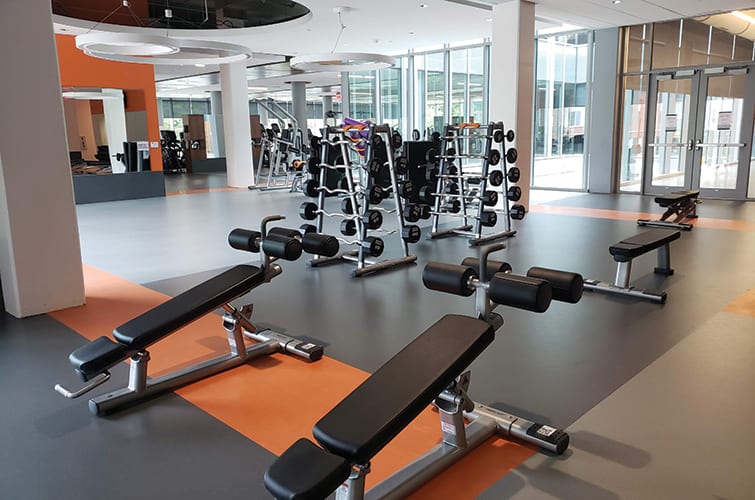What’s more important: quality products or quality vendor partners?
When it comes to campus recreation fitness equipment, the answer is both. Jenny Rodgers, the assistant director of Fitness and Wellness at Clemson University, said the goal is to keep open lines of communication long after the sale is made and equipment delivered. “These relationships have become helpful during times where we need a quick response to a maintenance issue, or when our plans for our spaces quickly pivot,” said Rodgers.
Working primarily with Life Fitness, Core Health and Fitness, and Matrix, she said they’ve also been able to work with Freemotion Fitness and Advantage Sport & Fitness. The diversity of vendor partners has been important at Clemson, especially in outfitting the new Douthit Hills Fitness Center and replacing older equipment in their main facility, Fike Recreation Center.
Jimmy Mullinax, the director of Facilities and Operations at Clemson, said over the years they’ve developed great relationships with these companies, mainly because of a great sales team, good customer support and the provision of technicians to fix equipment during the warranty period.
Customer service, reliability and responsiveness are other factors Tyler DeLeon, the assistant director of Performance and Fitness at MIT Recreation, looks for in vendor partners. However, MIT is different from Clemson in the fact it works with a third-party distributor.

In fact, the school’s previous distributor, New England Fitness, restructured due to COVID-19’s impact and no longer offers technicians. As such, DeLeon said they decided to find a new distributor that would be able to service all of their equipment lines —Precor, Escape and Xpresso, to name a few.
During that process of contracts and quotes, DeLeon said they looked at the cost per service visit and the number of visits MIT Recreation could afford. He also looked at each company’s level of interest in the local collegiate recreation community. Plus, he called up other local schools to find out what their experience with the equipment distributor had been like — do they go the extra mile? Do they communicate? “Take your time researching,” he said. “If you are locked in, know what to expect.”
Pandemics can be telling of vendor partnerships as well. Mullinax and Rodgers both said Core Health and Fitness has really stepped up during this period. The company worked with Clemson to draw up a floor plan for equipment that is socially distanced, and has provided free and discounted certifications for employees. “It’s important for us to make sure our students know how to help a patron use a piece of equipment, but if they can receive even more education on the product and its most effective uses, that instantly increases the customer service they can provide,” said Rodgers.

Advantage Sport & Fitness got Clemson in touch with one of their partners to provide temperature check devices for the university’s recreation facilities. “If vendors care about our programs, even when we are not able to purchase equipment, it shows they are trying to help us, not just make a sale,” said Mullinax.
While price is important, the quality of the equipment, the warranty and the relationship are just as key. Mullinax stressed the importance of doing your research and developing those vendor partnerships with a couple of different companies. He said it’s vital to be upfront with them about what you need, and look for that same honesty in return as that makes a good sales rep — one who will tell you they don’t have what meets your needs, but points you to a competitor who does.
So, look at the cost, but evaluate every other angle of the relationship when deciding on what vendor partners to go with. “Do no try to go with the cheapest company, but look at the quality of their products and how they have adapted over time to meet the changes of our rec environment and what they are doing remotely to continue to support fitness well-being,” said Mullinax.










